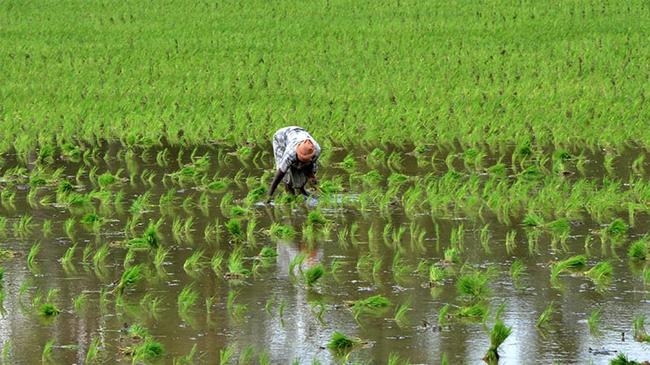Summary
The Ministry of Agriculture, Irrigation, Natural Resources, and Livestock has set out eight strategic priorities for the 2025/26 financial year
Source: The Citizen

AI News Q&A (Free Content)
Q1: What are the eight strategic priorities outlined in Zanzibar's Sh92.7 billion agriculture budget for the 2025/26 financial year?
A1: The strategic priorities of Zanzibar's Sh92.7 billion agriculture budget for 2025/26 include strengthening irrigation infrastructure, promoting sustainable agriculture practices, supporting agro-processing, investing in research and innovation, enhancing food security, improving access to markets, increasing extension services, and fostering climate resilience. These initiatives are designed to revitalize the sector, boost productivity, and ensure the economic empowerment of local farmers.
Q2: How does agriculture contribute to Zanzibar's economy and what are the main crops produced?
A2: Agriculture is a cornerstone of Zanzibar’s economy, providing livelihoods to a significant portion of the population and accounting for a large share of exports. The main crops produced include cloves, nutmeg, cinnamon, coconut, and black pepper, which have historically earned Zanzibar the nickname 'Spice Islands.' In addition to cash crops, subsistence farming of rice, cassava, and vegetables is also prevalent.
Q3: What recent innovations in African agriculture have shown the most promise in improving productivity and food security, according to scholarly research?
A3: Recent scholarly research highlights the adoption of Information Communication Technology (ICT) innovations as promising for improving agricultural productivity and food security in Africa. Mobile-based services, such as SMS and voice-based agricultural advisory platforms, have been effective in disseminating timely information to farmers. However, challenges remain due to limited technological infrastructure and low digital literacy among rural farmers. (Source: 'Adoption of ICT innovations in the agriculture sector in Africa: A Systematic Literature Review', 2020)
Q4: What are the pros and cons of implementing artificial intelligence (AI) in African agriculture, as discussed in recent literature?
A4: The deployment of AI in African agriculture enhances efficiency, accessibility, and inclusivity by providing advanced analytics for crop management, pest control, and market access. It can empower smallholder farmers through AI-driven decision tools and climate adaptation strategies. However, barriers include digital literacy gaps, infrastructural limitations, and concerns about data privacy and ethical use. (Source: 'Empowering Africa: An In-depth Exploration of the Adoption of Artificial Intelligence Across the Continent', 2023)
Q5: How is climate change impacting agriculture in Zanzibar and Africa, and what adaptive strategies are being considered?
A5: Climate change poses significant threats to agriculture in Zanzibar and across Africa, including erratic rainfall, rising temperatures, and increased incidence of pests and diseases. Adaptive strategies under consideration involve promoting climate-smart agriculture, diversifying crops, improving irrigation systems, and integrating indigenous knowledge with scientific research to enhance resilience. (Source: 'A review of effects of climate change on Agriculture in Africa', 2021)
Q6: What economic impacts are expected from Zanzibar's investment in agricultural innovation and infrastructure?
A6: Investment in agricultural innovation and infrastructure is projected to improve productivity, create jobs, and increase incomes for smallholder farmers in Zanzibar. Enhanced value chains and access to markets are expected to boost exports, particularly of spices and processed products, contributing to broader economic growth and poverty reduction.
Q7: How does Zanzibar's approach to sustainable agriculture compare to historical and global best practices?
A7: Zanzibar’s push for sustainable agriculture aligns with global best practices, such as the use of integrated pest management, organic farming, and climate-resilient crops. Historical examples, like terrace farming in the Inca Empire, demonstrate the long-term benefits of adapting agricultural methods to local ecosystems, which remains relevant for Zanzibar’s efforts to balance productivity and environmental conservation. (Source: 'Agricultural Economics and Innovation in the Inca Empire', 2025)
References:
- Zanzibar - Wikipedia: https://en.wikipedia.org/wiki/Zanzibar





